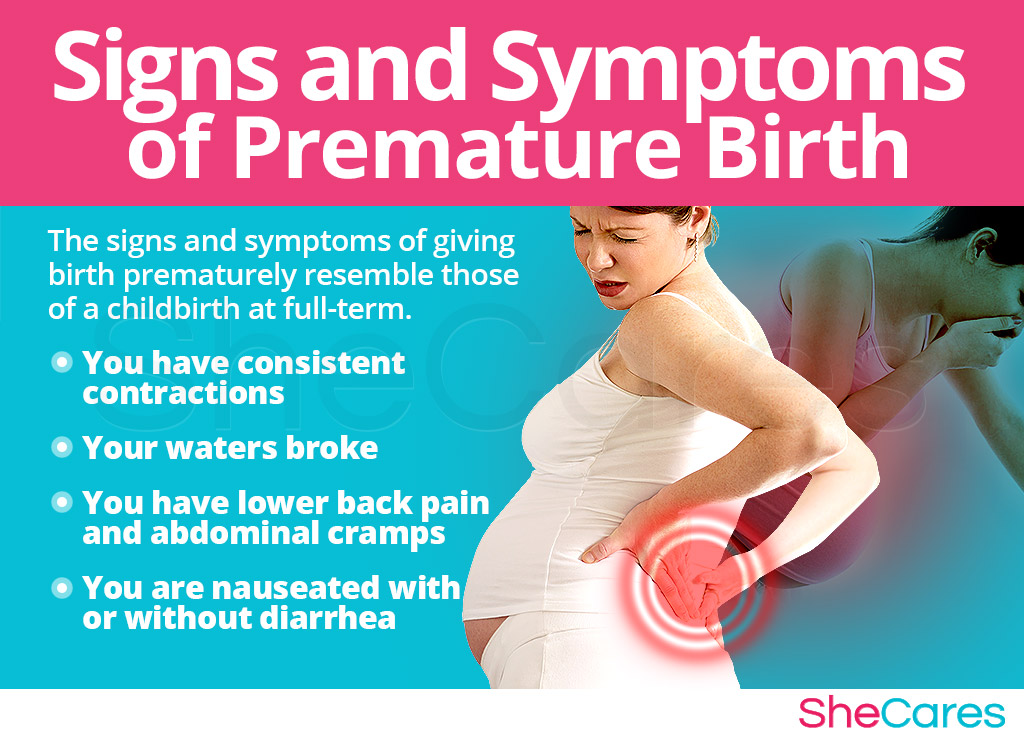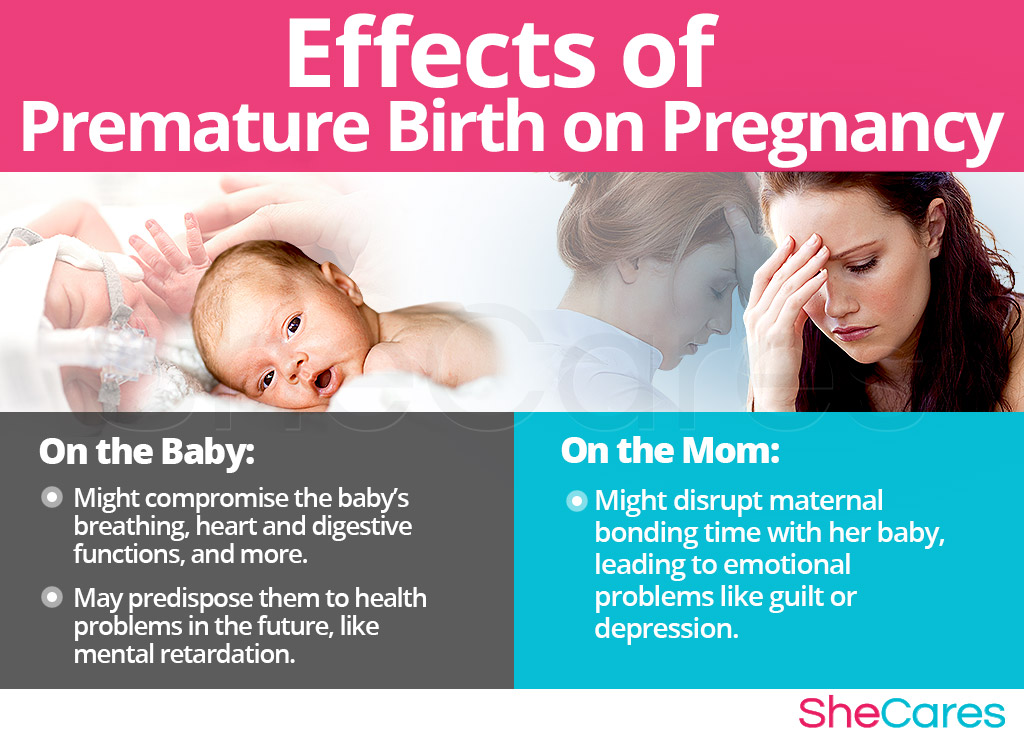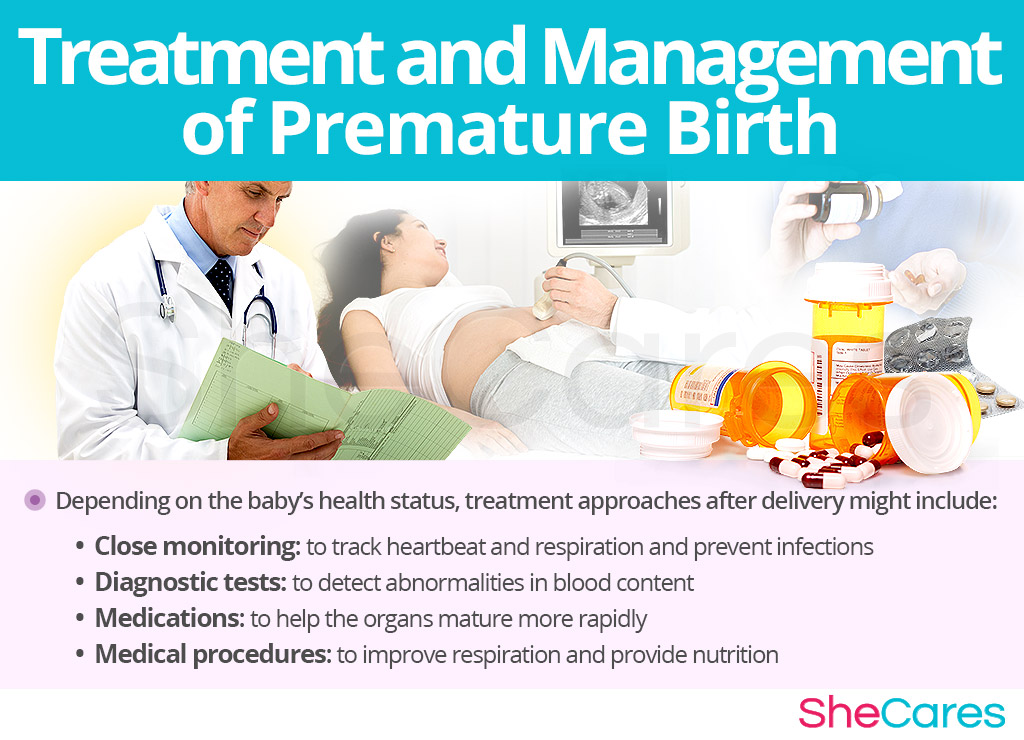What is Premature Birth?
A premature birth is defined as a birth that occurs more than three weeks before the baby's due date, that is before the 37th week.
It is also called a preterm birth as it comes to a conclusion before the end of the 40th week, which encompasses a full-term pregnancy. The term is further divided into four categories, depending on the week in which the baby is born:
Extremely preterm: birth at or before 25 weeks
Very preterm: birth before 32 weeks
Moderately preterm: birth between the 32nd and 34th week
- Late preterm: birth between the 34th and 36th week (most common preterm birth)

Causes and Risk Factors of Premature Birth
In many cases, preterm birth is not triggered by a specific cause. It might be the result of a combination of risk factors that evoke preterm labor although it can also occurs among women with no known risk factors.
History of premature birth
Having conceived through IVF
Short spacing between pregnancies (less than 6 months)
Maternal addictions
Poor prenatal care
Uterine, cervical, or placental abnormalities
Pre-pregnancy health conditions, such as diabetes or high blood pressure
Abnormal weight prior to conception (underweight or overweight)
History of miscarriages or abortions
Trauma or injuries
Being of Afro American or Native American descent
- Stressful life events

Signs and Symptoms of Premature Birth
The signs and symptoms associated with premature birth resemble those of going into labor in full-term. They include:
Strong and consistent contractions
Abdominal cramping and pelvic pressure
Waters breaking
Lower back pain
Diarrhea or nausea
Vaginal discharge called mucus plug

Effects of Premature Birth on Pregnancy
Effects on the Baby
Although not all preterm babies suffer from serious health problems, being born too early might not provide enough time for organs to develop, leading to a number of complications. The most common health difficulties premature babies experience right after delivery include the following:
Breathing problems
Low body temperature
Heart issues
Bleeding in the brain
Jaundice and anemia
Feeding and digestive problems
- Lower immunity
Moreover, premature babies might be predisposed to developing certain health conditions later on in life. These include cerebral palsy as well as impaired learning, vision, and hearing.
Effects on the Mother
The effects of a preterm birth on the mothers mainly have a psychological aspect. Most early-born newborns require more specialized care and are often separated from their mothers to ensure their well-being. This can take an emotional toll on women and disrupt their bonding time with their babies.
As a result of that, some mothers feel unattached to their infants, which give rise to a wide variety of feelings from guilt to anger to depression.

Risk Reduction of Premature Birth
It is important to remember that in most cases a premature birth is not caused by something a woman did or did not do. There are, however, a number of healthy practices that might help women minimize the risk of this pregnancy complication. They include:
Eating a wholesome, balanced diet will not only resolve any potential nutrient deficiencies, but also help you maintain a healthy weight.
Quitting your addictions at least 3 months before getting pregnant can greatly decrease the risk of them compromising your pregnancy.
Reducing stress with yoga or meditation is good for your baby's development and might also lower the likelihood of early delivery.
Controlling your chronic conditions or infections before getting pregnant will help you prevent preterm labor and a wide range of other serious complications during pregnancy.
Also, a woman with a short cervix might be prescribed progesterone pills to prevent premature labor. Other women might choose to undergo cervical cerclage, which is a procedure during which the cervix is temporary tied for the duration of pregnancy to provide more support.
Treatment and Management of Premature Birth
Treatment depends on the individual health status of the baby upon delivery. In some cases, a preterm birth can be slowed down or delayed to give the baby a chance to continue developing in the womb.
Upon delivery, preemies generally require more specialized attention and are admitted to the neonatal intensive care unit to help them thrive.
Close monitoring. Many preemies are placed in incubators to keep a constant temperature, prevent infections, and closely monitor their heart rate, respiration, fluid input and output, and more.
Diagnostic tests. Following delivery, your baby will undergo a variety of tests, such as blood analyses, to evaluate its condition and better address its medical needs.
Medications. Babies that are born very early, might need medications to help their organs, such as lungs or digestive tract, mature as well as prevent bleeding in the brain.
Medical procedures. If your baby cannot swallow or suck on its own, it might be necessary to feed intravenously or with tube feeding. Ventilators can help the baby breath until the lungs fully mature. Some preemies with anemia or jaundice need blood transfusions or phototherapy.
Aftercare
The time when you and your baby will be discharged from the hospital is determined by whether your baby can meet certain requirements. They include an ability to breathe on his own, maintain stable temperature, breast or bottle-feed, and properly gain weight.
Once you return home, it might be necessary to continue with some treatments. This might be a stressful time for you. So, make sure you surround yourself with people you can lean on, and don't hesitate to ask for guidance and help.
As you baby grows, your doctor might direct you to adequate specialists to rule out or prevent further complications, like learning disabilities and other health conditions.

Key Takeaways
Without a doubt, having a preterm baby can be truly distressing not only to the mother, but also her partner and other family members. Depending on how early your baby arrives and the extent of complications that follow, a preterm birth might involve complex therapies in the future. But thanks to medical advancements, babies delivered before the due date still have good chances for maintaining optimal health in the years to come.
Sources
- American Pregnancy (2015). Premature Birth Complications. Retrieved 26/01/2018 from http://americanpregnancy.org/labor-and-birth/premature-birth-complications/
- CDC. (2017). Premature Birth. Retrieved 26/01/2018 from https://www.cdc.gov/features/prematurebirth/index.html
- Healthy Children. (2018). Health Issues of Premature Babies. Retrieved 26/01/2018 from https://www.healthychildren.org/English/ages-stages/baby/preemie/pages/Health-Issues-of-Premature-Babies.aspx
- March of Dimes. (n.d.). Long-term health effects of premature birth. Retrieved 26/01/2018 from https://www.marchofdimes.org/complications/long-term-health-effects-of-premature-birth.aspx
- Mayo Clinic. (2017). Premature birth. https://www.mayoclinic.org/diseases-conditions/premature-birth
- PLOS. (2014). Emotional Reactions of Mothers Facing Premature Births: Study of 100 Mother-Infant Dyads 32 Gestational Weeks. Retrieved 26/01/2018 from http://journals.plos.org/plosone/article?id=10.1371/journal.pone.0104093
- Sage Journals. (2012). The Impact of Premature Childbirth on Parental Bonding.Retrieved 26/01/2018 from https://www.healthychildren.org/English/ages-stages/baby/preemie/pages/Health-Issues-of-Premature-Babies.aspx
- WHO. (2018). Premature birth. Retrieved 26/01/2018 from http://www.who.int/en/news-room/fact-sheets/detail/preterm-birth
